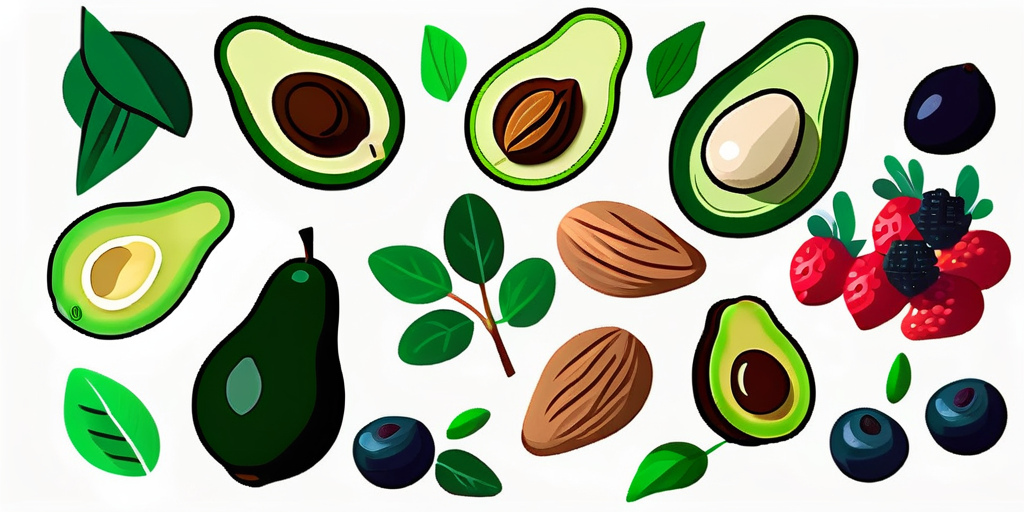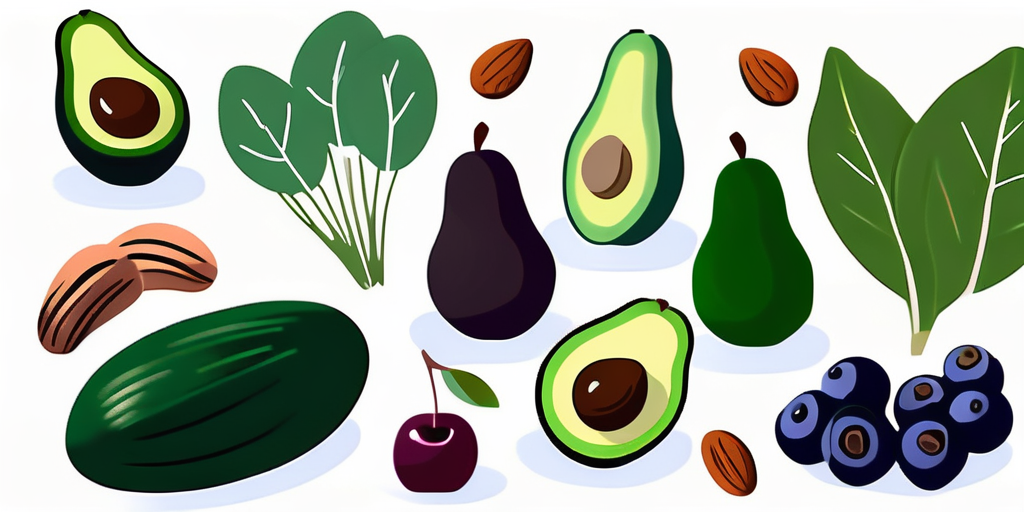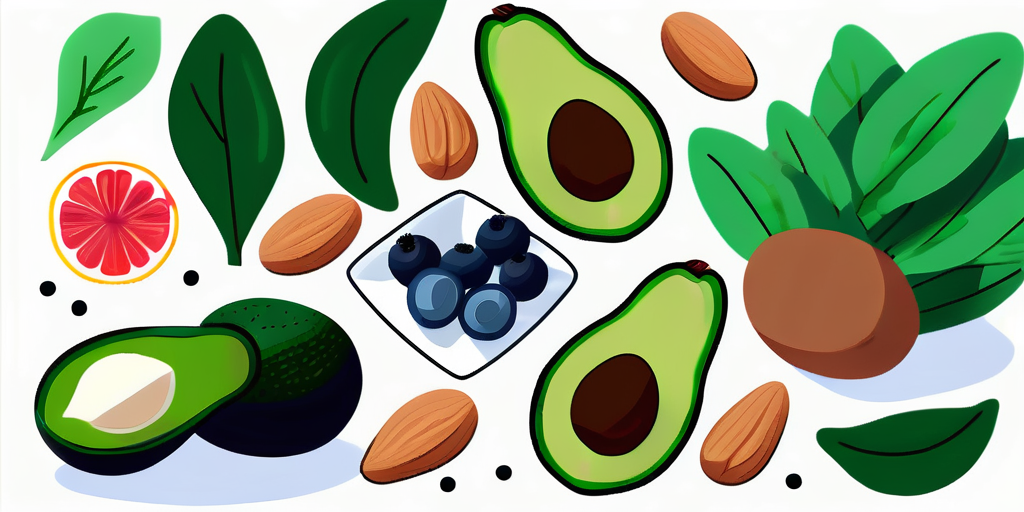During pregnancy, it is crucial to prioritize your nutritional needs to support the growth and development of your baby. Consuming a well-balanced diet that includes a variety of nutrient-dense foods can provide optimal health benefits for both you and your baby. In this article, we will explore the importance of nutrition during pregnancy and highlight the power of superfoods in promoting a healthy pregnancy.
Understanding the Importance of Nutrition During Pregnancy
Nutrition plays a vital role in supporting the overall health and well-being of pregnant women. It provides essential nutrients for fetal development, helps prevent pregnancy complications, and supports the mother's health during this transformative period. It is crucial to consume a balanced diet that includes a variety of macro and micronutrients to ensure optimal health outcomes for both mother and baby.
During pregnancy, the body undergoes numerous changes to accommodate the growing baby. These changes require additional nutrients to support the increased metabolic demands. Adequate nutrition is essential to ensure that the baby receives all the necessary building blocks for healthy growth and development.
One of the key aspects of nutrition during pregnancy is the role of vitamins and minerals. These micronutrients are essential for various physiological processes that are integral to fetal growth and development. For example, folic acid is crucial for the early development of the baby's neural tube, which eventually forms the brain and spinal cord. It is recommended that pregnant women consume sufficient amounts of folic acid through diet or supplements to reduce the risk of neural tube defects.
Iron is another important mineral during pregnancy. It plays a vital role in the production of red blood cells, which carry oxygen to the baby and the mother's organs. Iron deficiency anemia is a common condition during pregnancy and can lead to complications such as preterm birth and low birth weight. Therefore, it is crucial for pregnant women to consume iron-rich foods or take iron supplements as recommended by their healthcare provider.
The Role of Vitamins and Minerals
Vitamins and minerals are essential during pregnancy as they support numerous physiological processes that are integral to fetal growth and development. Folic acid, for example, is crucial for the early development of the baby's neural tube. Iron is also important as it helps in the production of red blood cells and prevents iron deficiency anemia, which can lead to complications during pregnancy.
In addition to folic acid and iron, other vitamins and minerals play important roles during pregnancy. Calcium is essential for the development of the baby's bones and teeth. It also helps in the proper functioning of the mother's muscles and nerves. Vitamin D is necessary for the absorption of calcium and plays a crucial role in bone health. Pregnant women should ensure they have adequate intake of these nutrients through a balanced diet or supplements.
Another important vitamin during pregnancy is vitamin C. It is needed for the growth and repair of tissues in both the mother and baby. Vitamin C also helps in the absorption of iron from plant-based sources, which is especially important for vegetarian or vegan pregnant women. Good sources of vitamin C include citrus fruits, strawberries, bell peppers, and broccoli.
Balancing Macros for Pregnancy Health
Macronutrients, such as carbohydrates, proteins, and fats, play a significant role in supporting a healthy pregnancy. Carbohydrates provide energy for the mother and baby, while proteins are essential for tissue development and growth. Healthy fats, such as omega-3 fatty acids, are crucial for the development of the baby's brain and eyes.
During pregnancy, it is important to choose complex carbohydrates, such as whole grains, fruits, and vegetables, over simple carbohydrates like sugary snacks and drinks. Complex carbohydrates provide a steady release of energy and are rich in fiber, which helps prevent constipation, a common issue during pregnancy.
Proteins are the building blocks of life and are essential for the growth and development of the baby's organs, muscles, and tissues. Pregnant women should aim to consume a variety of protein sources, including lean meats, poultry, fish, legumes, and dairy products. It is important to ensure that the protein sources are cooked properly to avoid any potential foodborne illnesses.
Healthy fats, particularly omega-3 fatty acids, are crucial for the development of the baby's brain and eyes. Omega-3 fatty acids can be found in fatty fish, such as salmon and sardines, as well as in walnuts and flaxseeds. Pregnant women should aim to include these sources of healthy fats in their diet to support optimal brain and eye development.
In conclusion, nutrition during pregnancy is of utmost importance for the health and well-being of both the mother and the baby. Consuming a balanced diet that includes a variety of macro and micronutrients is essential to support fetal growth and development, prevent complications, and maintain the mother's health during this transformative period. It is recommended that pregnant women consult with their healthcare provider or a registered dietitian to ensure they are meeting their specific nutritional needs during pregnancy.
The Power of Superfoods
Superfoods are nutrient-rich foods that offer exceptional health benefits. By incorporating these foods into your diet, you can maximize your nutrient intake and support your overall well-being during pregnancy.

During pregnancy, it is crucial to consume a well-balanced diet that provides all the necessary nutrients for both the mother and the developing baby. Superfoods, with their high nutrient content, can play a significant role in meeting these nutritional needs.
Defining Superfoods
Superfoods are typically plant-based foods that are rich in vitamins, minerals, antioxidants, and other beneficial compounds. They are known for their ability to boost health and provide an abundance of essential nutrients that support various bodily functions.
Some examples of superfoods include berries, leafy greens, nuts and seeds, fatty fish, whole grains, and legumes. These foods are not only packed with nutrients but also offer unique health-promoting properties.
How Superfoods Benefit Pregnant Women
Superfoods offer numerous benefits for pregnant women. They provide essential nutrients required for proper fetal development and maternal health. For example, leafy greens like spinach and kale are excellent sources of folate, a crucial nutrient for preventing neural tube defects in the developing baby.
Additionally, superfoods are often high in fiber, which can help alleviate pregnancy-related constipation. The increased hormone levels during pregnancy can slow down digestion, leading to constipation. Including fiber-rich superfoods like chia seeds, quinoa, and lentils can help regulate bowel movements and promote digestive health.
Moreover, superfoods' antioxidant properties can support a healthy immune system and reduce the risk of chronic diseases. Pregnancy puts extra stress on the immune system, making it essential to consume foods that can strengthen it. Berries, for instance, are packed with antioxidants that help protect cells from damage and boost overall immune function.
In addition to their nutritional benefits, superfoods can also add variety and flavor to your meals during pregnancy. Trying out new recipes and incorporating a wide range of superfoods can make your meals more exciting and enjoyable.
However, it is important to note that while superfoods offer many health benefits, they should be consumed as part of a balanced diet. It is always recommended to consult with a healthcare professional or a registered dietitian before making any significant changes to your diet, especially during pregnancy.
Top Superfoods for Pregnancy
Now that we understand the significance of superfoods during pregnancy, let's explore some of the top superfoods that can provide maximum health benefits:
Leafy Greens and Their Benefits
Leafy greens, such as spinach, kale, and Swiss chard, are packed with essential nutrients like folate, iron, and vitamins A and C. These nutrients are crucial for the development of the baby's organs and immune system. Adding leafy greens to your diet can also help prevent constipation and contribute to healthy digestion.
Furthermore, leafy greens are known for their high antioxidant content, which helps protect cells from damage caused by harmful free radicals. The antioxidants found in these greens can also reduce the risk of certain pregnancy complications, such as preeclampsia.
In addition to their nutritional value, leafy greens are versatile and can be incorporated into a variety of dishes. You can enjoy them in salads, stir-fries, smoothies, or even as a side dish.
The Importance of Berries
Berries, including strawberries, blueberries, and raspberries, are not only delicious but also rich in vitamins, minerals, and antioxidants. These vibrant fruits provide a wide range of health benefits during pregnancy, such as reducing the risk of gestational diabetes, supporting brain development, and enhancing the immune system.
One of the key nutrients found in berries is folate, which is essential for the formation of the baby's neural tube and can help prevent birth defects. Berries are also a great source of fiber, which aids in digestion and helps prevent constipation, a common discomfort during pregnancy.
Moreover, the antioxidants present in berries play a vital role in protecting the body's cells from oxidative stress. This can help reduce inflammation and support overall maternal health.
Why Whole Grains Matter
Whole grains, such as quinoa, oats, and brown rice, are excellent sources of fiber, vitamins, and minerals. They provide sustained energy, aid in digestion, and help regulate blood sugar levels. Adding whole grains to your meals can provide essential nutrients for both you and your baby, supporting healthy growth and development.
Whole grains are particularly rich in complex carbohydrates, which are broken down slowly by the body, providing a steady release of energy. This can help combat fatigue and keep you feeling energized throughout the day.
In addition to their energy-boosting properties, whole grains are also packed with B vitamins, which are essential for the development of the baby's nervous system. These grains also contain minerals like magnesium and zinc, which play a crucial role in various bodily functions.
Integrating whole grains into your diet can be as simple as swapping refined grains for whole grain alternatives. For example, you can choose whole grain bread, pasta, or cereals instead of their refined counterparts.
Incorporating Superfoods into Your Pregnancy Diet
Incorporating superfoods into your pregnancy diet is easier than you might think. Here are some strategies to help you embrace the power of these nutrient-packed foods:

Easy and Delicious Superfood Recipes
Experiment with superfood recipes that are simple to prepare and incorporate into your daily meals. Start your day with a nutrient-rich smoothie using leafy greens, berries, and a scoop of chia seeds. Or enjoy a wholesome salad with a variety of colorful vegetables and a tasty quinoa base.
Tips for Meal Planning with Superfoods
Plan your meals in advance to ensure you have a variety of superfoods readily available. Opt for nutrient-dense snacks like trail mix with nuts and dried fruits, or indulge in a dark chocolate bar with at least 70% cocoa content for a guilt-free treat. Fill your shopping cart with a range of fresh fruits, vegetables, whole grains, and lean proteins to create well-rounded meals.
Maintaining a Balanced Diet Beyond Pregnancy
While it is essential to focus on nutrition during pregnancy, it is equally important to maintain a balanced diet beyond the prenatal period. Here are some key considerations:

Post-Pregnancy Nutrition
After giving birth, your body needs time to recover and heal. It is crucial to consume a well-rounded diet that supports postpartum recovery, including foods rich in iron, calcium, and protein. Incorporate lean meats, dairy products, nuts, and seeds to aid in tissue repair and replenish essential nutrients.
Superfoods for Breastfeeding Mothers
If you choose to breastfeed, it is vital to continue prioritizing your nutrition. Including superfoods in your breastfeeding diet can help you meet your increased calorie needs and provide your baby with essential nutrients through breast milk. Berries, leafy greens, and lean proteins are particularly beneficial during this phase.
Introducing Superfoods to Your Child's Diet
As your child grows, you can introduce superfoods into their diet to support their overall health and development. Start by offering them a variety of fruits and vegetables, whole grains, and lean proteins. Encourage them to explore different flavors and textures to develop healthy eating habits from an early age.
Conclusion
Incorporating superfoods into your pregnancy diet can provide you and your baby with optimal health benefits. The power of these nutrient-rich foods lies in their ability to support fetal development, enhance maternal health, and reduce the risk of complications. By understanding the importance of nutrition during pregnancy and incorporating a variety of superfoods into your meals, you can promote a healthy and thriving pregnancy journey for you and your baby.




